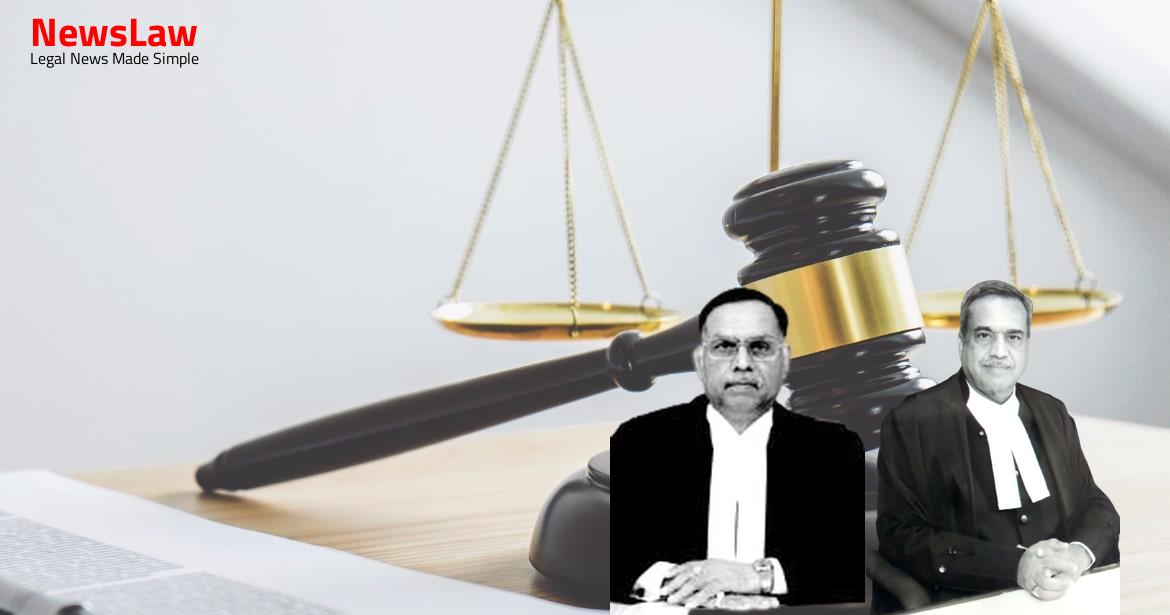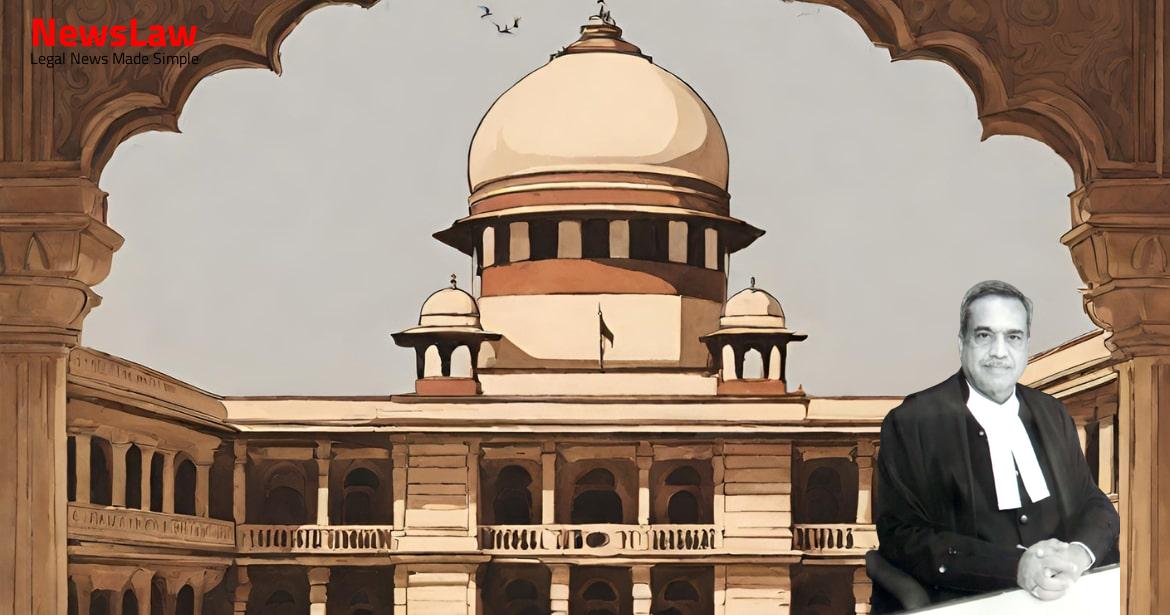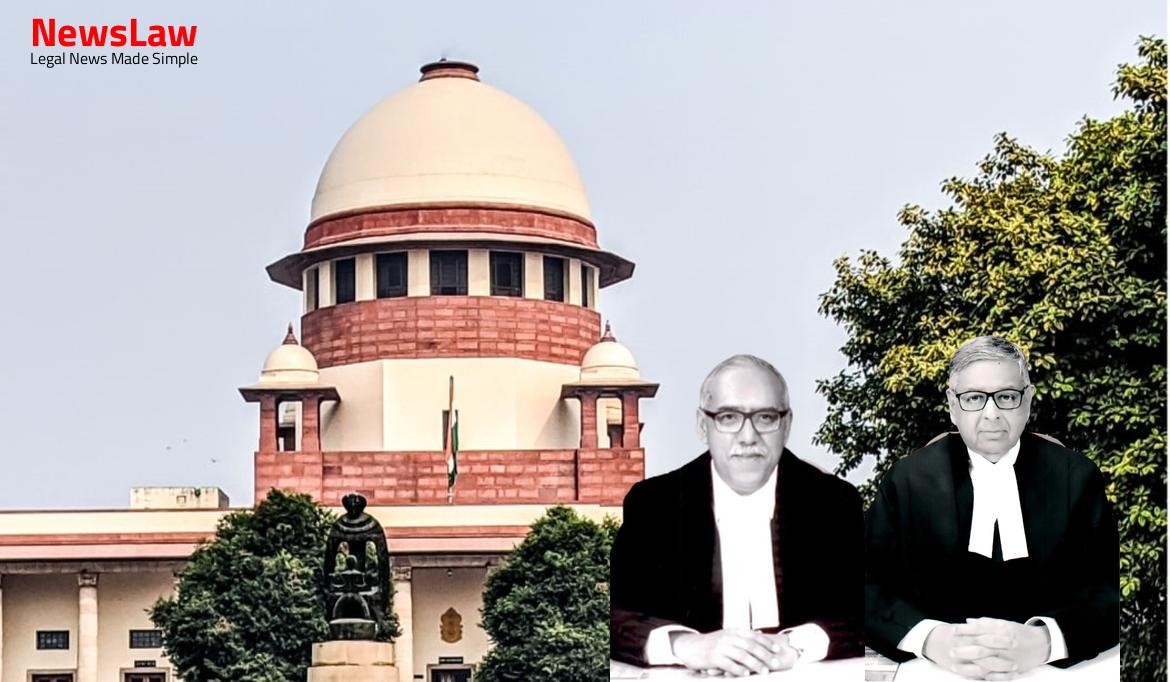Delve into the nuanced legal examination of defining ‘goods’ in the realm of taxation, particularly concerning lotteries. The court’s detailed analysis scrutinizes the constitutional provisions and legislative competencies, offering valuable insights into the taxation of specific actionable claims. This comprehensive review sheds light on the intricacies of tax law and its application to diverse economic activities.
Facts
- The petitioner is an authorized agent for the sale and distribution of lotteries organized by the State of Punjab.
- The writ petition challenges the definition of goods under Section 2(52) of the Central Goods and Services Tax Act, 2017, and the notifications related to the levy of tax on lotteries.
- The petitioner seeks a declaration regarding the levy of tax on lotteries.
- The petitioner’s arguments revolve around the classification of lotteries as goods for the purpose of taxation.
Also Read: Transfer of Writ Petitions for Chartered Accountants’ Tax Audit Guidelines
Issue
- Whether the writ petition is maintainable under Article 32 of the Constitution as it relates to lottery
- Is there a rational reason for singling out lottery, betting, and gambling from other actionable claims for taxation
- Definition of goods and whether actionable claims can be considered as goods
Also Read: Interpretation of Wildlife Protection Act: Schedule I Species Identification
Arguments
- The petitioner argues that the definition of goods in the Central Goods and Services Tax Act, 2017 is contrary to the legal meaning of goods and is unconstitutional.
- It is contended that lottery is not considered goods under the Act, hence levying GST on lottery is ultra vires the Constitution.
- The inclusion of actionable claim in the definition of goods is challenged as a deliberate attempt to enable taxation and is termed unconstitutional.
- The petitioner relies on previous court judgments and constitutional definitions to support the argument that lottery should not be classified as goods for taxation purposes.
- The argument is made that the definition of goods in the Act does not align with constitutional definitions and must be struck down as unconstitutional.
- The contention of discriminatory taxation between lottery and other actionable claims is highlighted as a ground for challenge.
- The petitioner emphasizes that the Parliament does not have absolute power to define taxable entities outside the constitutional framework.
- The maintenance of the writ petition under Article 32 of the Constitution is defended by the petitioner as being fully justifiable.
- Respondent challenged on ground of hostile discrimination with regard to only three categories of actionable claims – lottery, betting, and gambling.
- Respondent argued that taxing only three items has no nexus with the object sought to be achieved.
- No rationale provided by the respondent for taxing only three specific categories.
- Respondent questions why only three actionable claims have been singled out if actionable claim is a homogeneous clause.
- Submission that lottery is not inherently pernicious.
- Reliance on earlier circular stating that prize money should be excluded from face value for taxation purposes.
- Point made that lottery is held worldwide and in other countries, GST is levied by excluding the prize money.
- Notification providing a uniform rate of lotteries organized by States or authorized by States during the pendency of the writ petition is mentioned.
- Issues with the expansive and unrealistic definition of goods under the Central Goods and Services Tax Act, 2017 are raised.
- Reference made to the definition of goods as per the Sale of Goods Act, 1930, and its application to the Constitution.
- Argument against an artificial expansion of the definition of goods and against the inclusion of actionable claims within the definition.
- Citing Dr. B.R. Ambedkar on the importance of Article 366(12) in the Constitution.
- Petitioner challenges the provisions of the Central Goods and Services Tax Act, 2017 related to taxing lottery tickets.
- Allegations of violation of Article 14 of the Constitution due to discriminatory taxation of only certain actionable claims.
- Petition argues against the levy of GST on lottery tickets, stating they are not actionable claims.
- Highlighting hostile discrimination in taxing only specific categories while leaving others out of the taxation net.
- Petitioner’s assertion that lottery only acquires property when the prize is declared.
- Decision not to consider the writ petition in relation to violation of Article 19(1)(g) based on the petitioner’s submission.
- Article 32 of the Constitution confers the right to move to the Supreme Court for enforcement of fundamental rights guaranteed in Part III.
- Importance of Article 32 in ensuring observance of the rule of law and enforcement of fundamental rights.
- Clarification that the writ petition does not claim a violation of rights under Article 19(1)(g).
- The significance of Article 32 as a potent weapon for the enforcement of fundamental rights.
Also Read: Privacy Rights Violation in Affixing Covid-19 Posters
Analysis
- The petitioner challenged the definition of ‘Goods’ under Section 2(52) of the Central Goods and Services Tax Act, 2017 as discriminatory and violative of various articles of the Indian Constitution.
- The petitioner’s alternative prayer was to exclude the prize money component of the lottery ticket from the taxable value.
- The petitioner also argued against the dual tax rates on the face value of lottery tickets, advocating for a uniform tax rate of 12% irrespective of the selling location.
- The court heard arguments from both the petitioner’s counsel and the Additional Solicitor General for the Union of India.
- The court referred to past judgments and legislative competencies regarding taxation on betting, gambling, and actionable claims.
- The court found that the definition of ‘goods’ in the Act did not violate constitutional provisions and was in line with previous rulings.
- The court accepted the method of determining the taxable value of lottery tickets as per the statutory regulations.
- The court discussed the inclusion of actionable claims in the definition of ‘goods’ and the implications of this inclusion.
- The court emphasized that the law recognized lotteries as gambling activities and not part of trade or commerce.
- The court concluded that the definition of goods in the Act was valid and within legislative competence.
- Section 2(b) of the Act defines lottery as a scheme for distribution of prizes by chance to participants who purchase tickets.
- Article 366 sub-clause (12) defines goods to include all materials, commodities, and articles, used in various property-related activities.
- The legislative power for levying tax on the sale of goods is restricted to transactions conforming to the Sale of Goods Act, 1930.
- The definition of goods in the Act, 2017 includes every kind of movable property except money and securities, but includes actionable claims.
- Rule 31A has been amended concerning the value of supply in cases of lottery, betting, gambling, and horse racing.
- The Act, 2017 is an act of Parliament to regulate goods and services tax as per Article 246A of the Constitution.
- The Parliament has exclusive power to make laws regarding goods and services tax for inter-State trade or commerce.
- Various definitions and provisions regarding actionable claims, goods, and sale of goods are highlighted and explained in the judgment.
- The courts cannot review the decisions regarding the tax exemptions and amendments made by the legislature or taxing authority.
- The judgment in The State of Madras v. Gannon Dunkerley & Co. does not support the contention that Parliament could not define goods in Act, 2017.
- Labour charges, planning, designing fees, machinery, tools, consumables, and similar expenses for labour and services must be excluded as charges for the supply of labour and services.
- The value of taxable supply is determined as per Section 15 of the Act, 2017.
- The Constitution Bench judgment in Sunrise Associates vs Govt. of NCT of Delhi held that actionable claims are includible in the definition of goods.
- A loan advanced to a shareholder by the company can be treated as income by law even if not considered as traditional income.
- Parliament has the authority to impose tax on goods and services.
- Different rates of sales tax can be justified based on economic policy considerations.
- Lotteries, betting, and gambling can be subject to tax based on economic policy and legal precedents.
- Judicial findings on lottery tickets as actionable claims and inclusion in the tax net are consistent with legal principles.
- Tax laws have historically regulated and taxed lotteries, betting, and gambling activities.
- Face value of lottery tickets for tax calculation should not abate the prize money.
- The legislative intent behind including specific actionable claims for GST taxation was rational and justifiable.
- There is no hostile discrimination in taxing certain actionable claims over others.
- The rationale behind taxing lotteries, betting, and gambling is grounded in regulating economic activities and social welfare.
- There is no violation of Article 14 in taxing specific actionable claims under the Act, 2017.
- The Court relied on the definition of “sale of goods” in the Sale of Goods Act, 1930
- The question at hand was whether the Madras General Sales Tax Act was ultra vires in taxing the supply of materials in execution of works contract as a sale of goods by the contractor
- The interpretation of the phrase “sale of goods” in Entry 48 of List II Schedule VII of the Government of India Act, 1935 was pivotal in this determination
- The petitioner had not challenged the notifications regarding the GST rates for lotteries in the writ petition, even though they were issued during the pendency of the petition.
- The levy of GST and determination of taxable value are governed by the Parliamentary Act in India, and the legislative scheme of other countries is not relevant to the issue at hand.
- Taxing policies and statutes vary in different countries according to their respective regimes.
- The issue brought before the court must be addressed by examining the statutory provisions of the Goods and Services Tax Act, 2017 and the rules therein.
- Based on the above considerations, the court held that the petitioner is not entitled to the reliefs sought in the writ petition.
Decision
- Subject to liberty, the writ petition is dismissed.
- The petitioner is allowed to challenge the notifications dated 21.02.2020/02.03.2020 separately.
- The petitioner has been granted liberty to challenge the rate of levy tax uniformly at 28% in appropriate proceedings.
Case Title: SKILL LOTTO SOLUTIONS PVT LTD. Vs. UNION OF INDIA (2020 INSC 676)
Case Number: W.P.(C) No.-000961 / 2018



